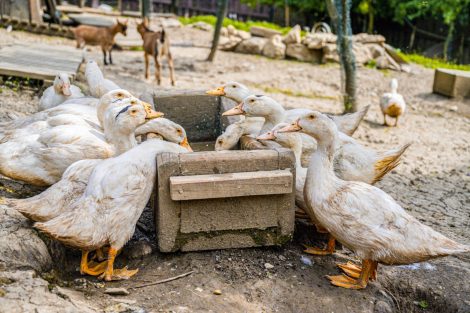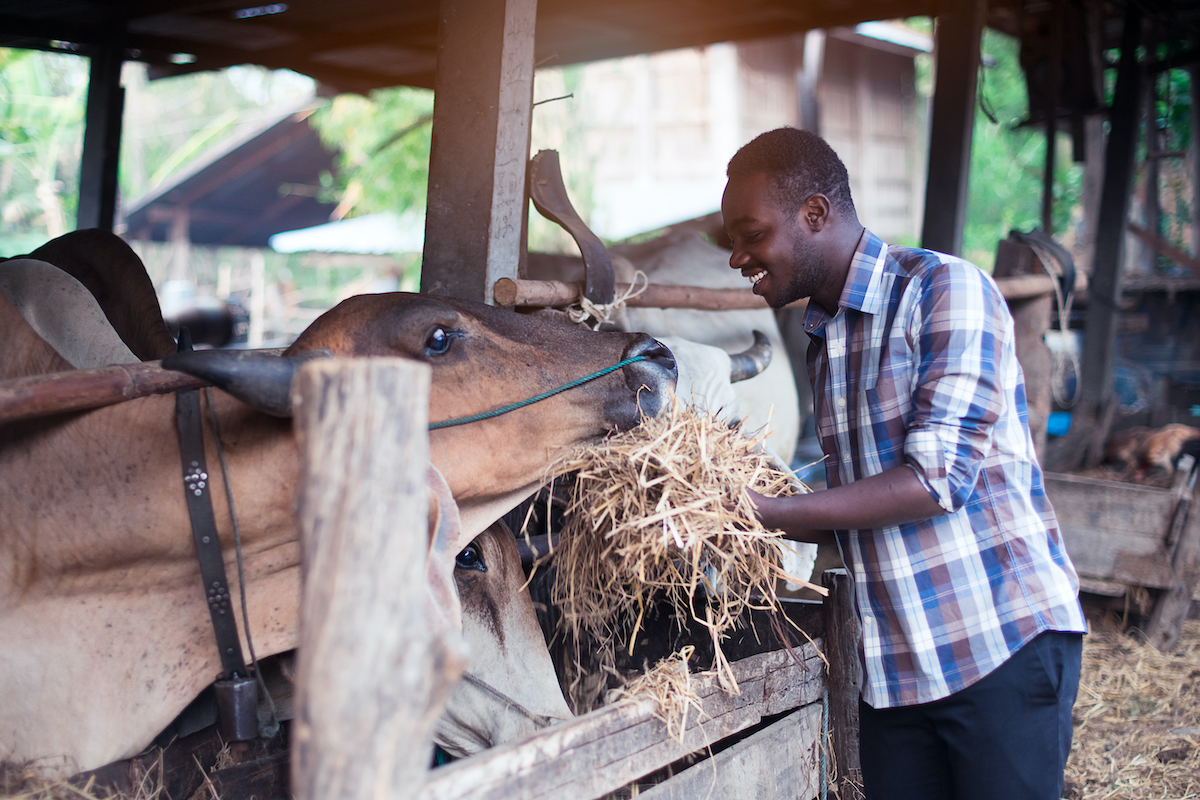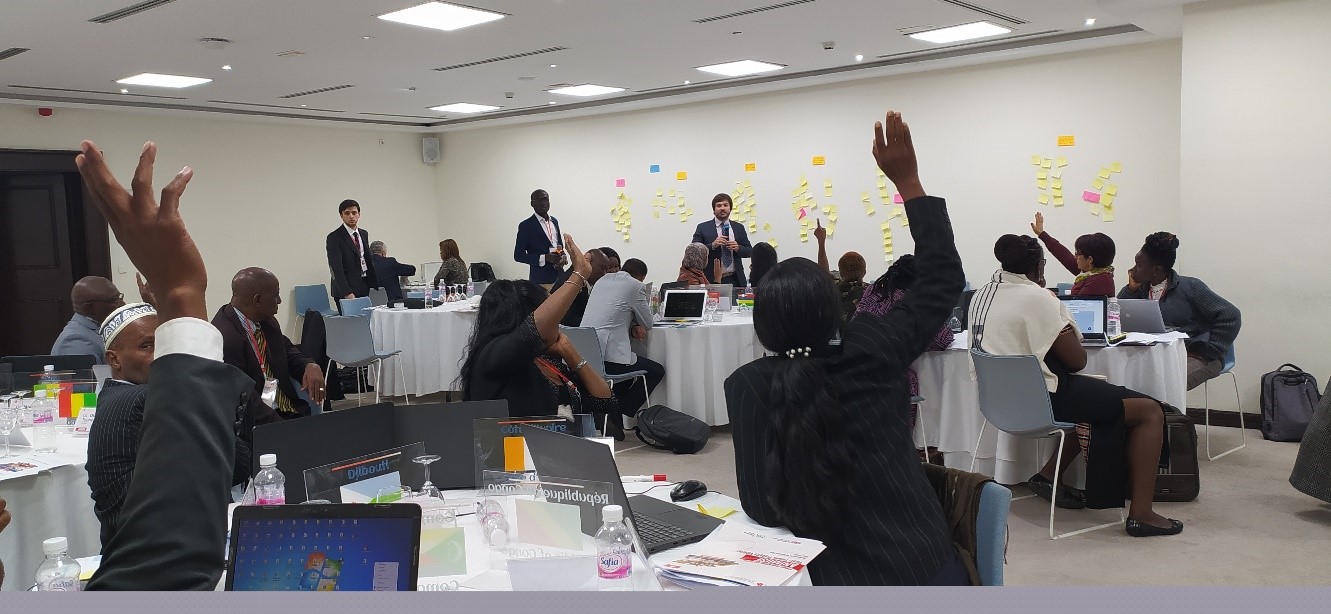
Africa still bears a high burden of zoonoses and other public health threats at the animal-human-environment interface. While reviewing the animal disease situation on the continent, the increasing spread of emerging diseases such as Rift Valley fever and avian influenza across countries raises concerns, alongside with the potential for their transmission to other continents, through trade and animal movement.
The work of the World Organisation for Animal Health (WOAH) in developing international standards to enhance animal health and welfare is fundamental in interrupting spillover of zoonotic pathogens to humans through the environment. Together with our partners from the Quadripartite (Food and Agriculture Organization of the United Nations-FAO, World Health Organization–WHO and UN Environment Programme – UNEP), we recently launched the One Health Joint Plan of Action (OH JPA), acknowledging the growing need to mitigate the impact of zoonoses, and other threats on human and animal health, as well as livelihoods. This joint effort also acknowledges the need for increased investments to strengthen health systems and a whole-of-society approach to prevent future pandemics. In the past year, WOAH has championed activities and programs in Africa that were aligned to the OH JPA. At the occasion of WOAH’s 90th General Session, an update was provided on how the region had progressed in 2022 in the implementation of the One Health approach to manage health threats.
Because early detection is vital to prevent pandemics, WOAH contributes to strengthening knowledge on wildlife health, and works towards reinforcing surveillance capacities at national level in Africa. By 2022, at least five countries in West Africa benefited from WOAH’s training on the development of integrated surveillance plans for viral hemorrhagic fevers, through our EBO-SURSY Project.
Additionally, an “Alert” game tool was designed and disseminated to help strengthen surveillance by increasing a community’s confidence in notifying appropriate local health and wildlife officials of possible outbreaks and spillovers in their natural surroundings.
The “Alert” game allows national stakeholders to understand their roles in disease surveillance. Additionally, in our efforts to enhance visibility and awareness, the region was able to carry out radio campaigns at community level in Democratic Republic of Congo and Guinea on zoonotic diseases. This initiative gives the community the opportunity to play a part in the larger regional and national surveillance system of animal diseases.
In parallel, the region also fostered activities geared towards strengthening national health systems through the organisation of National Bridging Workshops (NBWs) in over 20 Members from Africa, as of December 2022. This kind of workshop is aimed at increasing collaborations between human, animal, and environmental health sectors. National participants jointly develop road maps to improve intersectoral collaboration in their country, thus strengthening capacity to address major health security risks, many of which are zoonotic.
Participants during a WOAH workshop
In addition, a specific NBW with a rabies methodology, was developed and piloted in Ghana.
Together with partners, WOAH supported a sub-regional workshop to strengthen the capacity of 15 Members in West Africa to undertake joint risk assessment of zoonotic diseases and other One Health threats. South Sudan was also supported to establish a national multisectoral coordination mechanism for One Health.
WOAH, in collaboration with its Quadripartite partners, mobilised resources to support the implementation of high impact activities in the roadmaps developed by countries. The Quadripartite has also supported recruitment of One Health specialists in 11 Members to work with national stakeholders to maintain the momentum of roadmap implementation.
WOAH has also supported countries in the region to progress in the elimination of Human deaths due to dog-transmitted rabies.
In West Africa, five countries benefitted from the WOAH Rabies Vaccine Bank. Since its establishment in 2012, this mechanism has contributed to the elimination of Rabies by enabling member countries to access high-quality vaccines at an affordable price and in a timely manner. These vaccines act as triggers for the implementation of mass vaccination campaigns, essential to any effective national rabies elimination strategy.
Thanks to the support of the Quadripartite collaboration, Namibia made progress in the elimination of Rabies in both animals and humans. Mass dog vaccination campaigns, including oral Rabies vaccination, surveillance, capacity building activities and intersectoral collaborations were implemented at national level.
Majority of African countries fall into the low-middle-income (LMIC) category. Therefore, funding and investments for OH remains crucial to achieve sustainable progress at both national and regional levels. The involvement of funding institutions and donors, international organizations, and other partners, as well as engagement for sustainable funding sources at regional, national, and sub-national levels are needed in Africa. Member countries responded to the 1st call of proposal of the Pandemic Fund, a new multilateral financing mechanism dedicated to supporting pandemic prevention, readiness, and response to future pandemics.


